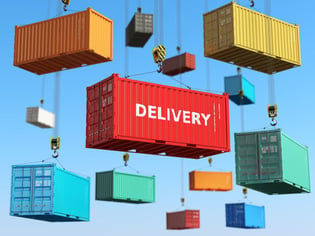- Home
- About
- Services
- Tools & Resources
- Client Info
- Request Info
- Carrier Tools
- Contact Us
- Get a Quote
- Français
Last week, we shared eight great reasons to choose a freight forwarder instead of working directly with a carrier to move your shipments. This week, we dive deeper into the work a freight forwarder does before your shipment even leaves your warehouse.

First, your freight forwarder will discuss your desired arrival time for your shipment, and any considerations that could affect its arrival. They then consult with you regarding things like Letters of Credit, Terms of Sales, and Incoterms.
Here’s a quick run-down of what those are and how they impact you:

Next, your freight forwarder will engage with the nuts and bolts of planning your cargo’s journey from point A to point B.
This includes:
Your forwarder will ask you questions to understand what’s most important to you.
Your forwarder weighs these considerations when determining which carrier is most appropriate for you and your shipment.

After all that groundwork has been laid, you and your forwarder will discuss carrier options. They’ll offer opinions regarding the carriers’ reliability to fulfill their commitments, and advise on which company can best meet your needs and priorities.
This thorough foundation is what separates freight forwarders from simply calling a carrier. Transportation companies don’t tend to focus on this preparation—they assume you’ve got the awareness and are doing the groundwork yourself.
Ready to connect with a seasoned professional who can guide you through all the steps of your cargo’s journey? With half a century of experience in shipping and freight solutions, we can help.